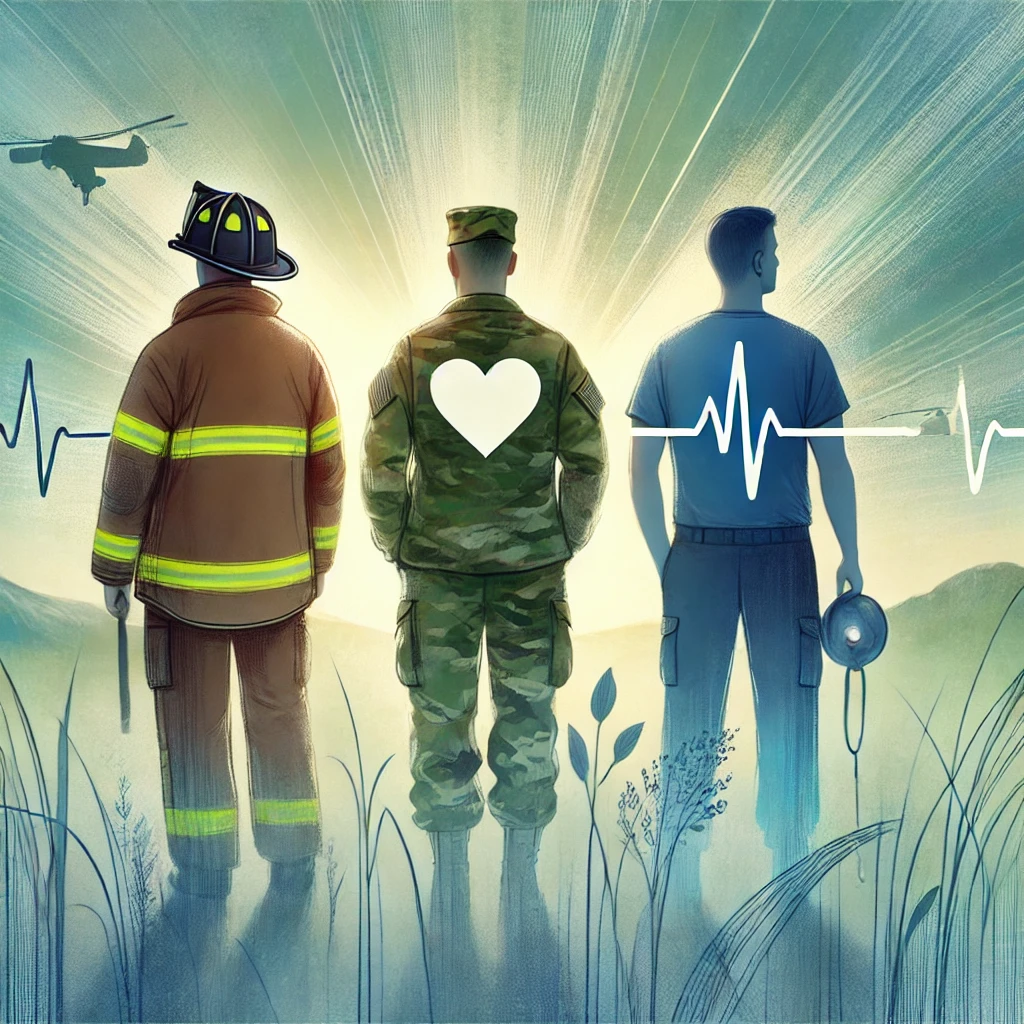The mental health crisis in America is an issue that casts a long shadow over our society, influencing many of the challenges we face in today’s news. Among the communities most deeply affected by this crisis are those who serve in the military, first responders, and the veterans of these groups. Despite their critical roles in ensuring our safety and security, mental health care for these individuals is often overlooked, undervalued, or underutilized.
The irony of this situation is stark. These professions place individuals in some of the most stressful and emotionally taxing environments imaginable. Whether it’s a soldier in combat, a firefighter running into a burning building, or a paramedic responding to a tragic accident, these individuals face circumstances that most of us can only begin to imagine. And yet, the systems in place to support their mental health often fail to address the cumulative toll of such experiences.
What if we could change this narrative? What if mental health care became a proactive, integral part of training and support for these communities? Imagine a world where coping mechanisms, resilience training, and mental health education were embedded into the very foundation of their preparation—before they ever encountered trauma. The benefits could be transformative, not just for these individuals but for society as a whole.
History shows us the ripple effects of advancements in care for these groups. Medical science has often leaped forward in response to the physical injuries sustained by military personnel and first responders. From trauma surgery techniques to prosthetics, innovations developed for these communities have saved countless lives and improved quality of life worldwide. Why can’t the same be true for mental health?
By investing in better mental health resources for the military, first responders, and veterans, we could create a similar overflow of benefits. Addressing post-traumatic stress disorder (PTSD), depression, anxiety, and other mental health challenges in these communities could not only improve their well-being but also serve as a model for broader societal change. The lessons learned and practices developed could help tackle the mental health crisis on a national scale.
This isn’t just a theoretical exercise. Programs like resilience training and peer support groups have already shown promise in mitigating the impact of trauma. Yet, these efforts often lack the funding, visibility, and integration necessary to make a widespread impact. To truly address the mental health crisis, we must prioritize these initiatives, advocating for systemic changes and increased resources.
The stakes are high, but so are the rewards. By championing mental health care for those who serve, we not only honor their sacrifices but also create a pathway to healing for society at large. Let’s ensure that those who protect us are protected in return—mind, body, and soul. See you out there.
Discover more from Inside the mind of Wade
Subscribe to get the latest posts sent to your email.



